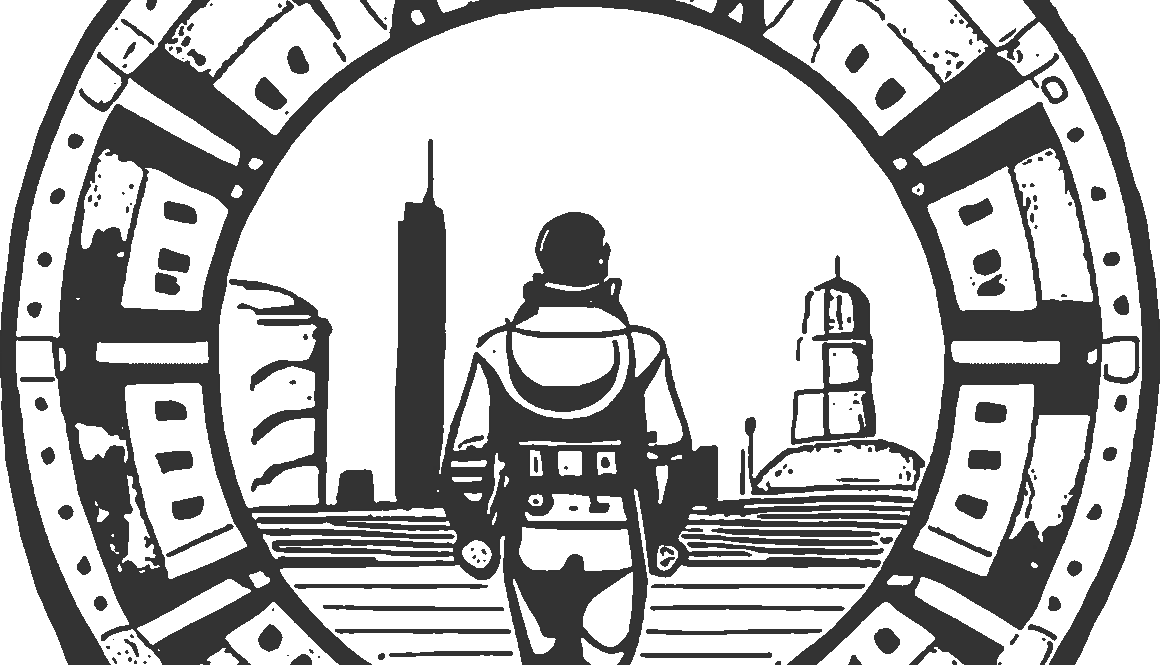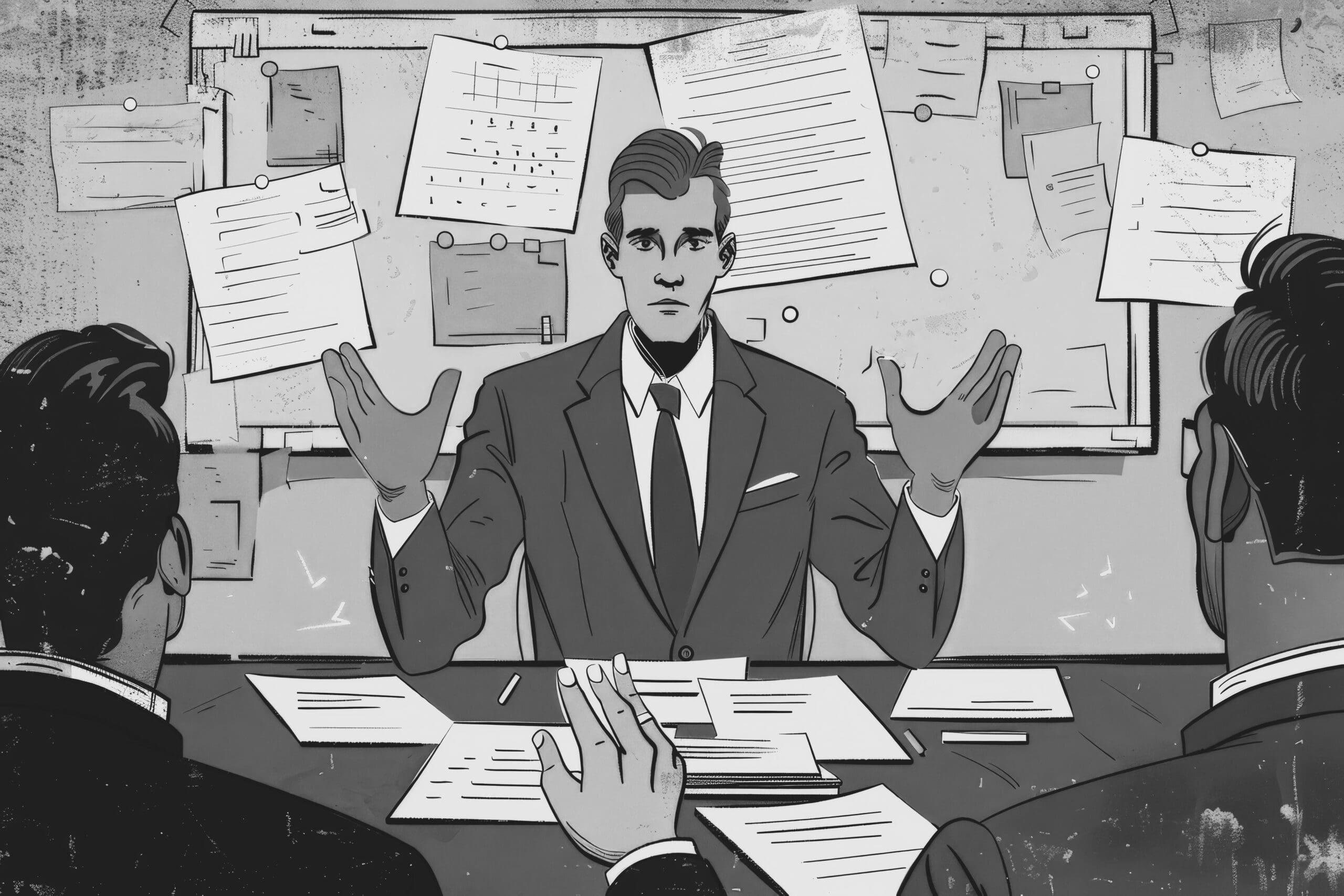You’re Fired! Great for The Apprentice—But Never Easy
No one forgets their first termination.
Not the employee.
Not you.
And definitely not your nervous system.
It’s the leadership moment no one trains you for, even though it’s one of the few things you will eventually have to do. And when that first time comes, you’re likely to overthink it, rehearse it in the mirror, run worst-case scenarios in your head, and still walk out feeling like you just kicked a puppy in public.
Everyone has a termination horror story or at least, it feels that way. In reality, we tend to dramatize what we thought might happen more than we admit the quiet truth:
“I just felt bad.”
I’ve come to believe this—
I’ve never actually fired anyone.
They fired themselves.
What I mean is, by the time it comes to letting someone go for performance, it shouldn’t be a surprise. They should already know they aren’t meeting expectations. They should understand exactly what needed to improve, and what the consequences would be if it didn’t.
But none of that changes the simple, sobering truth:
At some point, you will terminate someone’s employment.
And you will change their life.
Meet Mike: High Energy, Low Awareness
Early in my career, the phrase “manage out” got tossed around a lot. It was the unspoken motto in an organization built on performance: you hit your targets, or you hit the road.
As a young manager, I didn’t think I could afford to carry low performers. And truthfully, some people just didn’t want to do the work.
Mike though; Mike was an interesting one.
High energy. Talkative. Proud of the work he did. Not exactly the kind of description that screams “he’s gotta go.”
But Mike just didn’t get it.
Our goals were clear. The company expectations were crystal. We had all the reports and metrics you could ever ask for. And somehow, with all of that, Mike still didn’t see it he wasn’t meeting expectations.
As his new manager, I saw the numbers. I knew we had a problem. But I also wanted to give him a shot. I thought if I could just show him what I and my leaders were seeing, I could help him rise to the challenge.
At our first team meeting, Mike came in confident, engaged, full of energy. He was upbeat. Vocal. Optimistic.
And I remember thinking, This is going to be easy.
I could not have been more wrong.
The Excuses Came Fast and I Almost Believed Them
One of my first one-on-one interactions with Mike was when he was covering a territory for another employee. We met up to prep for a customer call, what should’ve been a focused, professional pre-call conversation.
But Mike came in like his hair was on fire.
The upbeat guy from our team meeting? Gone. The person who stood in front of me that day had nothing positive to say.
Well; let me clarify.
In hindsight, what Mike was doing was unloading. Word-vomiting every reason he wasn’t meeting his targets. Every systemic excuse, every team complaint, every external factor you could imagine. And I didn’t realize it right away but Mike knew he wasn’t getting the job done. So when he finally got his one-on-one with his new manager, he used it to steamroll me. Not just to excuse his own performance, but to cast doubt on the entire team.
And I bought it.
Keep in mind, he was saying all this while covering for someone else’s territory. Not even his own accounts.
So you can imagine my reaction.
No, you probably can’t.
The man writing this today would’ve handled that moment very differently. But back then? I let it shake me. I let his version of reality dilute my instincts. It softened my drive to hold him accountable and made me question whether I was seeing the situation clearly.
Luckily, that phase didn’t last long.
The Breaking Point: Same Customers, Same Excuses
Once the dust from our first meeting had settled and I had time to do one-on-ones with the rest of the team, I started spending more time in Mike’s territory.
Each visit was more of the same.
He’d rant about how he couldn’t get the job done because he was always being pulled elsewhere covering, helping, being called in by others. The “why I can’t” list was endless. But now, I knew to ask better questions. And this time, I had scheduled multiple days with him.
Day One looked a lot like the last time I rode with Mike. In fact, it looked identical.
Same customers. Same route. Same talking points. Hmmm.
We had a few good interactions, found a couple of spots where we might be able to grow product volume, and by midday, Mike had finally run out of steam. That’s when the script repeated like your least favorite album starting over.
He started in again, this time adding that a teammate from another market, Tim, kept calling him for help. It was taking up all of his time.
Finally. An opening.
I thought I had the moment. I could show Mike how that off-district work was tanking his results. I could help him draw the line.
Nope. Not with Mike.
When I walked him through it, he lost it.
“Then why is Tim calling me?”
“Why do I have to go down there all the time?”
My answer? “You don’t.”
But Mike wasn’t having it.
“I can’t tell him no. I like Tim. He’s my friend. We have fun when I go down.”
I tried again. “Mike, that work isn’t your responsibility. It’s pulling you away from what you’re actually accountable for.”
He refused to hear it.
That night, after a brutal backseat meltdown from Mike, we wrapped up and I told him, “Let’s meet at the diner on 6th at 7:30 tomorrow. Bring your plan for the day.”
Mike just… went quiet.
That alarmed me. Mike hadn’t shut up all day. Silence wasn’t like him.
But he nodded. “Okay.” And left.
Day Two: The Wheels Come Off
If Day One was confusing, Day Two was exhausting.
More excuses. More yelling. More talk about how he was being asked to do work that didn’t align with his role. I kept listening, but I also started pushing harder.
I showed him his schedule. His gaps. His misalignment. I connected his decisions to his results, using his own customer visits as evidence where people were saying things like:
-
“Oh wow, it’s been a while.”
-
“Nice to meet you, Mike.”
Nice to meet you?
That pushed Mike into overdrive. He doubled down. Said we didn’t understand the job. Said the company didn’t support the work. And when I finally showed him how to actually close a sale with a customer we’d already seen the day before he snapped.
“Why did you do that? You shouldn’t have asked him to buy those things. Now I owe him!”
I couldn’t believe it.
“What do you mean, owe him?”
Then came the final unraveling.
Mike started ranting about people worrying about him. About missing calls. About his girlfriend being upset because they hadn’t talked. He was spiraling. Fast.
By the time we got back to the diner where I’d left my car, I knew one thing with absolute clarity:
I wasn’t doing Day Three.
I’d audit the customers myself.
Call Tim directly.
Get the truth.
Honestly if I hadn’t seen it, hadn’t heard it all firsthand, I wouldn’t have believed it.
Uncovering the Truth: When Excuses Become Strategy
Following my instincts and digging deeper, it didn’t take long to understand why Mike was so upset. Why he “owed” people. Why he kept dropping everything to help Tim.
At some point, Mike had figured it out:
Helping in another market was the perfect excuse.
And he ran with it.
Yes, he did help occasionally. But it wasn’t because he was being asked. It was because he wanted to. The territory? New York City. He and his girlfriend would go down to the city and meet up with Tim. Go out. Have fun.
Tim, for what it’s worth, didn’t know what Mike was doing. He thought Mike was just tagging along. He didn’t realize Mike was using his name and his territory as a cover story to avoid doing his actual job.
And then came the customer visits.
Most of them? Couldn’t even pick Mike out of a lineup.
They were frustrated, with me, with the company, and with the empty promises they’d been handed. They hadn’t received the service they were promised.
The few that did know Mike fell into two camps:
“He’s great!”
Or: “He’s always asking for stuff.”
Turns out, Mike and his girlfriend would visit customers together, and try to barter. They’d offer company products or services in exchange for things they wanted personally.
I couldn’t believe it.
And as bad as it sounds, it got worse.
The Storage Unit: A Leadership Nightmare
After Mike was terminated, I had to go clear out the storage unit he kept under the company’s name.
It was a scene straight out of National Treasure.
Piles of products. Unused assets. Promotional gear. Cases of chemicals. Thousands of dollars’ worth of company property stuff that never should’ve been in his possession jammed into a 10×30 unit.
He had somehow circumvented controls and built up an inventory that he used for personal projects, side deals, or to curry favor with customers. He’d turned a company job into a personal barter system.
By the end of the third day in his territory, it was already clear:
This wasn’t salvageable.
Mike didn’t need coaching.
Mike needed to be terminated.
And that’s exactly what happened.
The Conversation You Dread Most
I had been yelled at.
I had witnessed erratic behavior.
I had seen Mike lose it because we did the job and sold something to a customer.
So what was going to happen when I went to terminate him?
This is where so many leadership horror stories are born. The legendary “freak-outs.” A few of my favorites?
The salesman who drove through the front door.
The service tech who chased his manager to the car and punched the hood so hard it had to be replaced.
The terminated leader who took the company car on a joy ride… before getting arrested.
You’ve probably heard some version of those.
But here’s the reality no one prepares you for:
Most terminations aren’t explosive.
They’re quiet.
And they’re heartbreaking.
Because when someone realizes it’s really happening, the reaction isn’t always rage it’s vulnerability.
They tell you they need their job for a prescription.
They don’t know how to tell their spouse.
They break down and beg to stay.
And you, if you’re human, you feel all of it.
Not just for them. For the cost of the decision. For the weight of your role.
If you’re still reading this post, I’m guessing you care about the people you manage. So here’s your warning: even when it’s quiet, it can hit hard.
The Termination: What Actually Happened
Mike, the angry, wild, irreverent employee—what was he going to do?
Would he scream at me?
Take the company car and vanish?
Make a scene in the parking lot of a burger joint?
I didn’t know. But I’d be lying if I said I wasn’t worried.
We did everything by the book.
I worked with HR. Documented Mike’s performance.
Communicated expectations. Gave him space to improve.
The process took over a month.
Then the day came.
First thing on a Friday, I drove to meet him. Documents in hand. Heart in my throat.
And to my complete surprise;
Mike barely reacted.
I told him it was time to part ways.
Handed him the paperwork. Asked if he had any questions.
He simply said, “No.”
Cleaned out his car.
Shook my hand.
Got in a taxi and left.
That was it.
I sat there feeling… everything.
Relief. Surprise. Even a little disappointment.
It felt too quiet. Too unresolved.
But it was done.
The Aftershock
Later that day, the calls started.
Mike got home and started reaching out, questions I couldn’t easily answer. Stuff about benefits. Final pay. Health coverage. I wanted to help, but I stayed where I needed to:
“You’ll need to reach out to your HR rep. They’ll walk you through it.”
Then came the question that gutted me.
“What do I do now?”
I didn’t have an answer.
I just knew this:
Mike couldn’t work here anymore.
And that’s where my role ended.
It wasn’t until later that the gravity of it really hit me.
He knew it was coming.
He knew he hadn’t done the job.
But losing it still crushed him.
And that’s the lesson I carry with me to this day.
They end it: I don’t
Every time I’ve had to end someone’s employment since, I ask the same questions:
Is this the right decision?
Have they been clearly told what success looks like?
Have they had a fair shot to get there?
What more can I do?
Because when the answer is nothing, that’s when it’s time.
I still believe this:
I’ve never fired anyone.
They’ve fired themselves.





